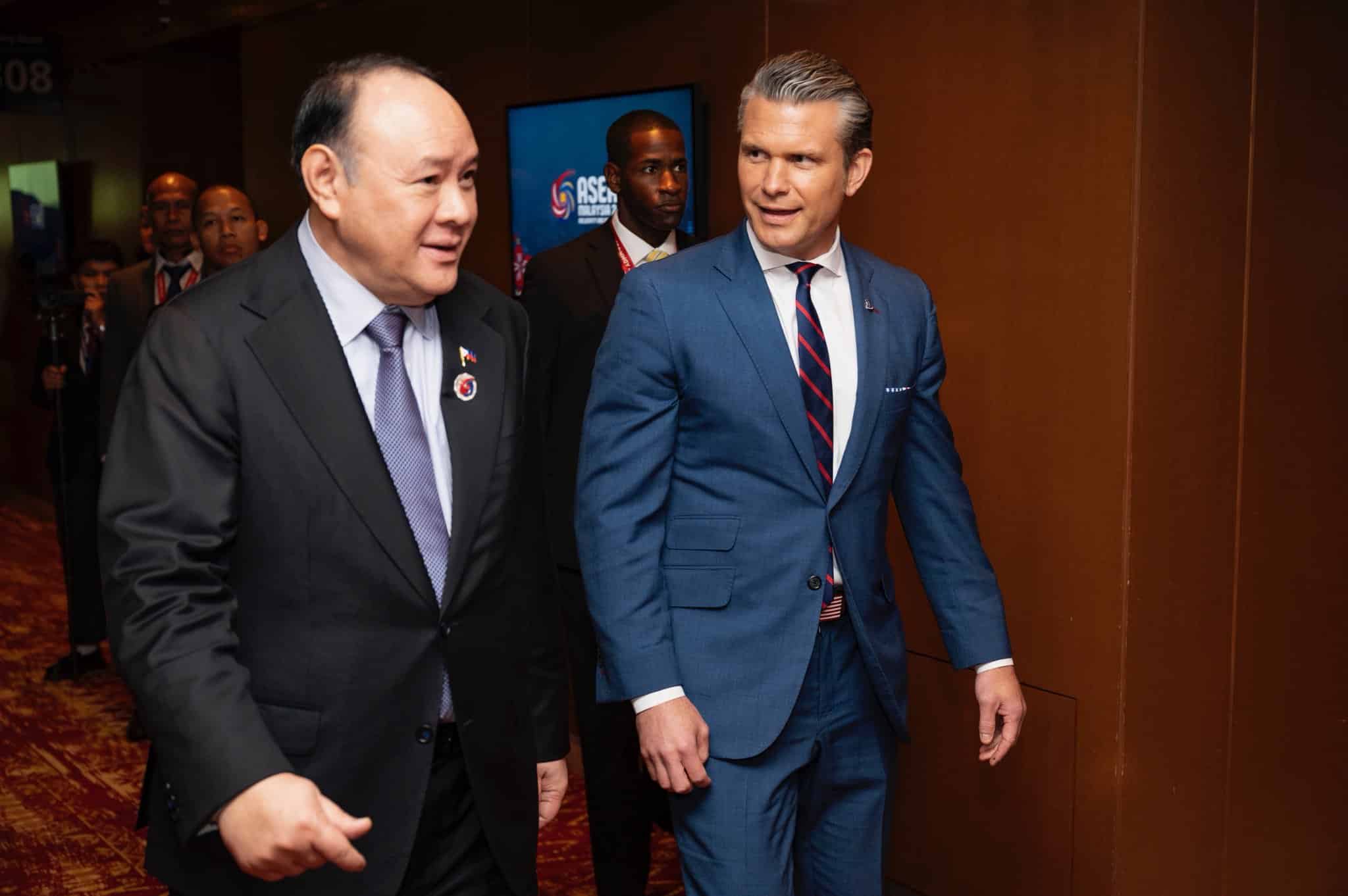Teodoro, Hegseth unveil new task force vs Chinese aggression in WPS

The Philippines’ Defense chief Gilbert Teodoro and US Department of War Secretary Pete Hegseth. Photo from Hegseth X account.
[Updated Oct. 31, 7:53 p.m.]
MANILA, Philippines — Manila and Washington formed a new task force to deter Beijing’s aggressive moves in the West Philippine Sea.
US Department of War (formerly Department of Defense) chief Pete Hegseth, along with his Philippine counterpart, Defense chief Gilberto Teodoro Jr., formally announced “Task Force Philippines” on Friday.
READ: West PH Sea: Austin reveals existence of ‘US Task Force Ayungin’
Hegseth and Teodoro met for the fourth time at the Association of Southeast Asian Nations (Asean) Defense Ministers’ Meeting in Malaysia.
“We don’t seek confrontation, but of course, we’re ready to protect our interests, individually and mutually,” Hegseth said, “and that’s why we’re publicly announcing the ‘Task Force Philippines’ here with you today.”
Hegseth said this move will increase the interoperability and contingency preparedness of the countries “so that we can decisively respond to a crisis or aggression and reestablish deterrence in the South China Sea.”
In November 2024, former US Secretary of Defense Lloyd Austin III revealed the existence of a “U.S Task Force Ayungin” last year, and it is not yet clear what will become of this task force following this new announcement.
READ: West-ph-sea-austin-reveals-existence-of-us-task-force-ayungin/
The task force name refers to the Ayungin (Second Thomas) Shoal where BRP Sierra Madre has been aground since 1999, which has become one of the flashpoints of tension between Manila and Beijing.
This announcement came months after the June 17, 2024, incident in Ayungin—the most violent thus far—which led to a serious injury of a Philippine Navy personnel.
This incident prompted calls to review the Mutual Defense Treaty between Manila and Washington that calls for each other’s defense in case of an “armed attack.”
Teodoro said the alliance between the two countries is now based on fundamentals like “respect for international law, respect for territorial integrity and sovereignty.”
“It is not only important for both our countries that we interoperate deeper, better…because freedom of navigation, respect for territorial integrity and sovereignty are not only important for us but for the whole world, given the strategic area that the Philippines occupies in the whole world economic supply chains and the security environment,” Teodoro said.
More than 20 percent of total global trade passes through the South China Sea, according to some estimates.
The Philippines is also part of the “first island chain,” which experts view as the United States’ first line of defense against China’s expansion in the Pacific. /mr


















